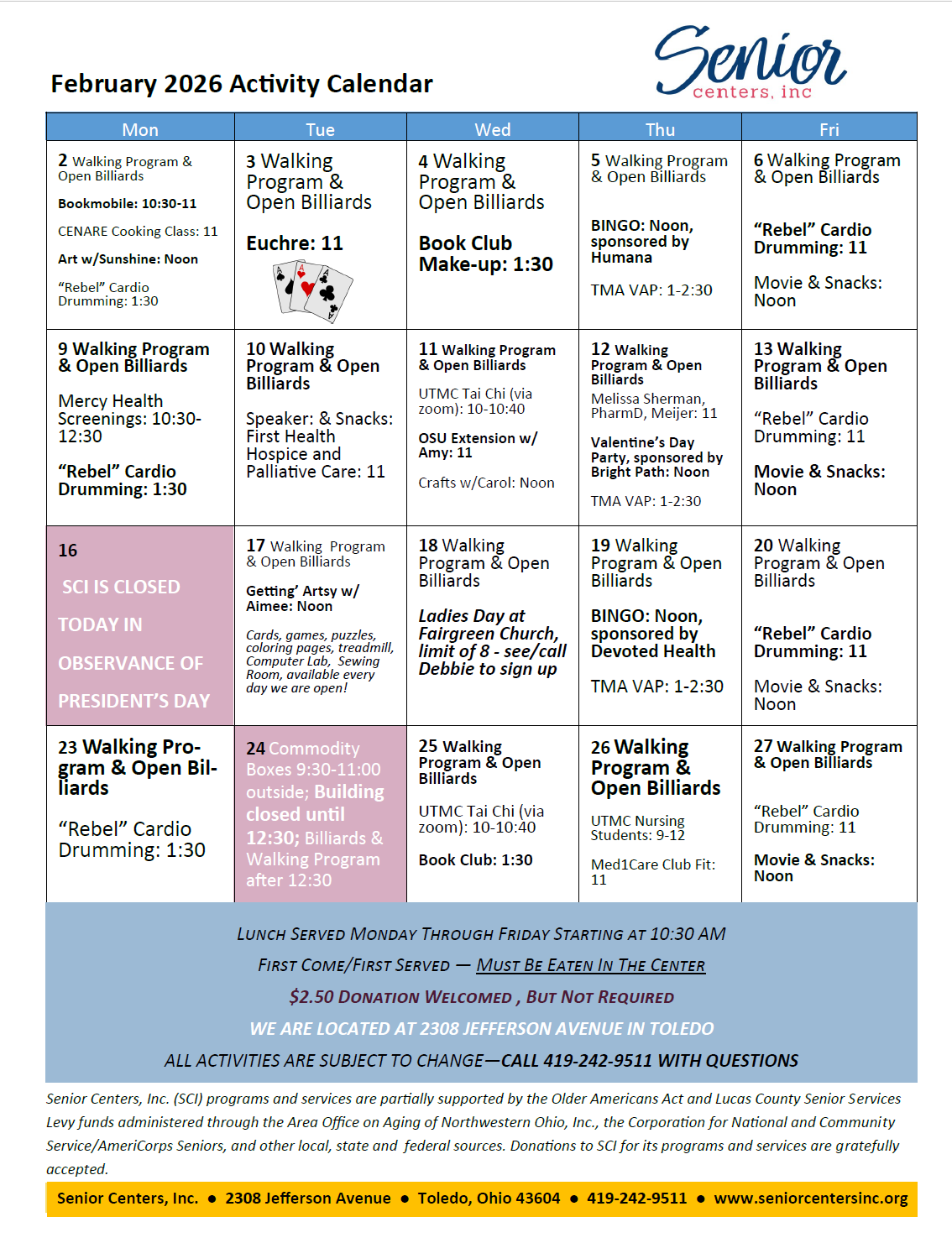Senior Citizens and Substance Abuse
Drug and alcohol abuse among the elderly is a rapidly-growing health problem in the United States.
According to statistics reported by the Lucas County Health Department’s Lucas County Opiate Coalition:
- deaths among people ages 60 to 64 due to accidental overdoses rose from 4 deaths in 2016 to 8 in 2017
- deaths among people ages 65 to 69 due to accidental overdose rose from 1 in 2016 to 4 in 2017.
Addiction among people aged 65 and older is often underestimated and under-diagnosed, which prevents them from getting the help they need. According to the Office of Alcoholism and Substance Abuse Services, substance abuse among senior citizens can be classified into two general forms:
- “hardy survivors” – who have been abusing substances for many years and have now reached age 65
- the “late onset” group – those who develop addictions later in life
Regardless of how old you are or when your addiction developed, treatment is available to help you get back on a healthy path. Causes of Addiction in the Elderly Several issues can contribute to someone turning to substance abuse later in life. Health-related issues and life-changing events that take an emotional toll may be provoke drug-abusing behavior that can result in a full-scale addiction. Potential triggers for drug or alcohol addiction in the elderly include:
- Retirement
- Death of a family member, spouse, pet, or close friend
- Loss of income or financial difficulties
- Relocation or placement in a nursing home
- Trouble sleeping
- Family conflict
- Mental or physical health declined (depression, memory loss, major surgeries, etc).
The Dangers of Substance Abuse for the Elderly Drug can alcohol abuse among the elderly can be particularly dangerous because senior citizens are more susceptible to the deteriorating effects. Individuals over 65 have a decreased ability to metabolize drugs or alcohol and have an increased brain sensitivity to them. This makes it dangerous for seniors to use drugs or alcohol at all, even if the person isn’t addicted. Benzodiazepines, which are used to treat anxiety, pain, or insomnia, are among the most dangerous prescription drugs for seniors. They are generously prescribed and highly addictive. The rate of senior citizens addicted to benzos has increased every year. Challenges in Identifying Addiction in the Elderly Alcohol or drug abuse may mimic symptoms of other medical or mental health disorders, such as diabetes, dementia, or depression. This makes it easier for doctors who encounter an older patient to chalk up declining mental or physical health simply to “old age.” Not long ago, a medical colleague of mine referred a 67-year-old woman to me with mild depression, weakness and complaints of short-term memory loss. Her physician told her there was no clear medical explanation for her symptoms, given that her physical exam, exhaustive lab tests and brain M.R.I were all normal…The problem, I soon discovered, was that her alcohol consumption had tripled since the death of her husband a year earlier. She did disclose to her internist that she drank but minimized the amount. She had turned to alcohol, self-medicating her grief, but it only worsened her mood and impaired her memory, typical of alcohol’s effects on the brain. – Richard A. Friedman, M.D., NTYtimes.com Symptoms of Addiction in Senior Citizens As people get older, their mental health, physical health and personal relationships may start to deteriorate. Although addiction can be difficult to recognize in this demographic, it’s important to pay attention to any unusual signs your loved one displays. Some signs of addiction to look for in the elderly include:
- Memory problems
- Changes in sleeping habits
- Unexplained bruises
- Irritability, sadness, depression
- Unexplained chronic pain
- Changes in eating habits
- Wanting to be alone often
- Failing to bathe or keep clean
- Losing touch with loved ones
- Lack of interest in usual activities
Once an addiction is identified, it is critical to seek out a treatment center that has experience specifically with seniors dealing with addiction. Look for programs that specialize in addiction and also offer case management services. Individuals over 65 typically lack the social support required throughout recovery. These case management services will provide the elderly with access to medical, psychiatric and social resources to allow for a healthy lifestyle to continue after treatment. Elderly Substance Abuse Statistics
- 17% of people in the United States over 65 have abused prescription medications, according to the Office of Alcoholism and Substance Abuse Services.
- Approximately 30% of adults over 65 are given some type of prescription medicine, according to the National Council on Alcoholism and Drug Dependence, Inc.
The National Institute of Alcohol Abuse and Alcoholism says men and women aged 65 or older should consume no more than 1 drink daily and no more than 2 drinks on any occasion. Substance Abuse and Intellectual Disabilities People with intellectual and developmental disabilities (I/DD) often do not find their way into substance abuse treatment because they are not recognized as likely to use or abuse substances or because the manifestations of use and abuse are camouflaged by their intellectual or developmental limitations. There’s a common misconception that people with I/DD don’t drink or use drugs, says Susan Tatum, LCSW, Assistant Director of Clinical and Emergency Services at the Alexandria Department of Community and Human Services in Virginia. Tatum says people with I/DD may in fact experience problems resulting from substance abuse, but substance abuse may not recognized as the source of the problems. While people with I/DD are less likely than others to use substances, those who do are both more likely to abuse them and more likely to experience negative consequences as a result. (G. Grady, 2013). The repercussions of substance use are magnified in this population in numerous ways, according to Grady. Substance users in the I/DD population may already have decreased attention spans, lower reaction times, and reduced cognitive functioning, and may already be excessively compliant, so the effect of drugs or alcohol on their brains is more pronounced. They’re less able, for example, to secure a safe ride home, to know when to stop drinking, or to recognize the danger to their well-being. As a result, they may need addiction treatment earlier than non-I/DD users or abusers. References:
Grady, G. (2013). Drug, alcohol & abuse; co-occurring disorder in individuals w/ intellectual/develop disabilities. https://www.socialworktoday.com/archive/091613p26.shtml
Get Into Treatment Now The alarming rate at which individuals 65 years and older are developing addictions to various substances is certainly reason for concern and something that should not be ignored by medical professionals, caretakers, or family members. If you or someone you know is struggling with addiction issues later in life and need help finding a treatment program, please contact a treatment expert today. For Lucas County residents, Harbor Behavioral Health offers the Wellness Initiative for Senior Education (WISE). This program includes educations on risk factors, such as isolation and loss, as well as on increasing positive behaviors and attitudes. The six-lesson WISE curriculum is delivered by trained prevention staff through 2 to 3 hour, small-group sessions held weekly over a six-week period. For more information about WISE or for assistance, please contact Carrie Dowling at Harbor at 419-475-4449. Adapted from www.addictioncenter.com.



